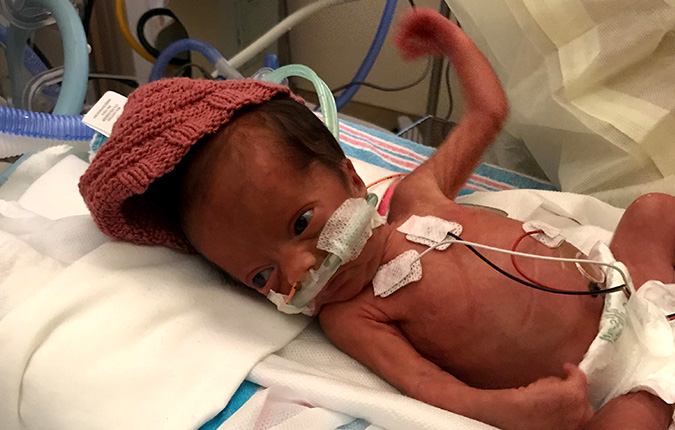Condition
Pediatric Ulcerative Colitis
Ulcerative colitis is a chronic inflammatory bowel disease (IBD) in which the lining of the large intestine (colon or bowel) and rectum becomes inflamed. In children, inflammation usually begins in the rectum and lower (sigmoid) intestine and spreads upward to the entire colon unless effectively treated.
The inflammation causes diarrhea, or frequent emptying of the colon. As cells on the surface of the lining of the colon die and slough off, erosions (open sores) form, causing pus, mucus and bleeding. The disease affects the body’s ability to absorb fluid, which is the major role that the large intestine plays in digestion.
Ulcerative colitis (UC) is a chronic condition that may recur at various times over a lifetime and requires long-term medical care. There may be remissions – periods when the symptoms go away – that last for months or even years. However, symptoms occasionally return (these periods are called flares).
Children may experience physical, emotional, social and family problems because of the disease, increasing the importance of proper management and treatment.
Frequently Asked Questions
What causes ulcerative colitis and who does it affect?
What are the symptoms of ulcerative colitis in children?
How is ulcerative colitis diagnosed?
What are the treatments for ulcerative colitis?
Should people with ulcerative colitis avoid certain foods?
Emotional and Social Care for Children with Ulcerative Colitis

Inflammatory Bowel Disease Treatment at Children's National Hospital
The Children’s National Inflammatory Bowel Disease Program takes a comprehensive, holistic approach to care to help your child feel better and enjoy daily activities. Discover more about the treatment we offer.

Providers Who Treat Ulcerative Colitis
 Aasha's Rare Gift Will Help Other Babies Grow up Healthy
Aasha's Rare Gift Will Help Other Babies Grow up HealthyTesting the descrption field
Departments that Treat Ulcerative Colitis

Inflammatory Bowel Disease Program
Our pediatric gastroenterology experts provide comprehensive services for children with IBD, including Crohn's disease and ulcerative colitis.






























